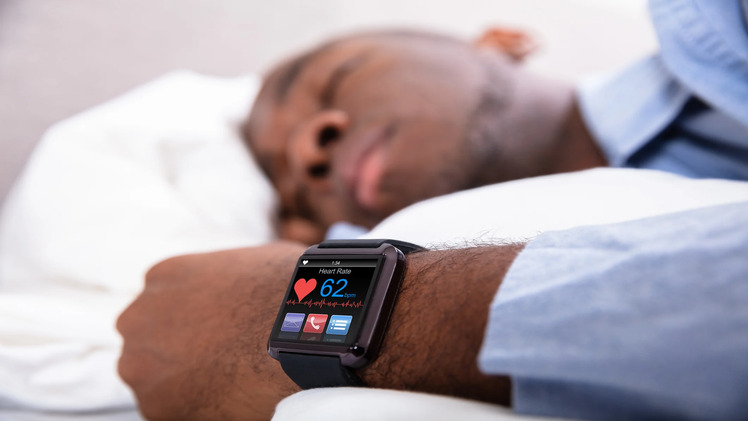Your heart rate, the number of times your heart beats per minute, fluctuates throughout the day and night, reflecting your body’s demands and activities. During sleep, it’s natural for your heart rate to decrease as part of the body’s natural rhythms. However, when your heart rate during sleep falls to an abnormally low level, it can be a cause for concern. In this article, we’ll explore what constitutes a too low heart rate while sleeping, its potential causes, and when it may require medical attention.
Normal Heart Rate During Sleep:
A normal heart rate during sleep can vary based on age and overall health. Typically, during deep sleep, when the body is at its most restful state, the heart rate can drop significantly. In healthy adults, it’s not uncommon for the heart rate to range from 40 to 60 beats per minute during sleep. In athletes or those who are very physically fit, it may even drop lower. For infants, children, and teenagers, heart rates during sleep tend to be higher.
What Is Bradycardia?
A too low heart rate during sleep is often referred to as bradycardia. Bradycardia is generally defined as a resting heart rate of less than 60 beats per minute. When this condition occurs during sleep, it can be categorized into two types:
Physiological Bradycardia: This is a normal response, especially during deep sleep phases, and is often observed in healthy individuals.
Pathological Bradycardia: This type of bradycardia is not considered normal and can be associated with underlying medical conditions or other factors. It may require medical evaluation and intervention.
Potential Causes of Pathological Bradycardia During Sleep:
Pathological bradycardia during sleep can result from various factors, including:
Sleep Apnea: Sleep apnea is a condition characterized by interruptions in breathing during sleep. It can lead to episodes of bradycardia due to reduced oxygen levels in the blood.
Medications: Certain medications, such as beta-blockers or anti-arrhythmic drugs, can lower heart rate. If you’re taking such medications, bradycardia may occur during sleep.
Arrhythmias: Irregular heart rhythms, such as atrial fibrillation or heart blocks, can lead to bradycardia. These conditions can disrupt the heart’s electrical signaling, causing slower heart rates during sleep.
Hypothyroidism: An underactive thyroid gland (hypothyroidism) can lead to a decreased heart rate. Thyroid hormone imbalances can affect heart function.
Age: In older individuals, age-related degeneration of the heart’s electrical system can result in bradycardia during sleep.
When to Seek Medical Attention:
Not all instances of low heart rate during sleep require medical intervention. However, if you experience the following symptoms or conditions, it’s essential to consult with a healthcare provider:
Symptoms: If you experience dizziness, fainting, shortness of breath, chest pain, or other concerning symptoms associated with bradycardia, it’s crucial to seek medical attention.
Consistently Low Heart Rate: If your heart rate consistently falls below 40 beats per minute during sleep, it may indicate an underlying issue that requires medical evaluation.
Sleep Apnea: If you have been diagnosed with sleep apnea and experience bradycardia during sleep, consult your healthcare provider for appropriate management.
Medications: If you suspect that medications are causing your low heart rate during sleep, discuss your concerns with your healthcare provider. They can adjust your treatment plan if necessary.
Treatment and Management:
The management of low heart rate during sleep depends on the underlying cause. In some cases, lifestyle modifications, such as weight loss or changes in medication, may be sufficient. In other cases, medical interventions like pacemakers or treatment of underlying conditions may be necessary.
In conclusion, a too low heart rate during sleep, or bradycardia, can result from a range of factors, including age, medications, sleep apnea, and underlying medical conditions. It’s important to distinguish between physiological bradycardia, which is normal during deep sleep, and pathological bradycardia, which may require medical attention. If you experience concerning symptoms or consistently low heart rates during sleep, consult a healthcare provider to determine the underlying cause and receive appropriate treatment or management. Monitoring your heart rate and maintaining open communication with your healthcare provider can help ensure your heart health during both wakefulness and sleep.


